The renowned Indonesian tourist destination of Bali has recently announced a landmark rooftop solar acceleration program. This initiative aims to drive the transformation of its energy structure through large-scale deployment of distributed photovoltaic systems, reduce reliance on fossil fuels, and serve as a demonstration model for Indonesia’s national energy transition.
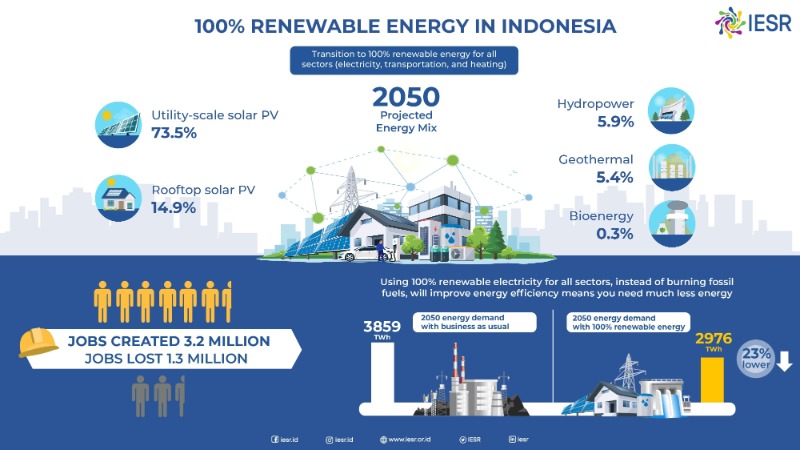
Source: IESR
Policy Leadership: Synergy Between Government and Business
At the program’s launch, Bali Governor I Wayan Koster emphasized that all provincial, district, and municipal government office buildings will take the lead in installing rooftop solar systems. Meanwhile, commercial and public facilities—including hotels, villas, schools, university campuses, and large markets—will also be mandated to adopt solar installations. This policy combines top-down administrative authority with market-driven incentives, seeking to break Indonesia’s long-standing dependence on fossil fuels.
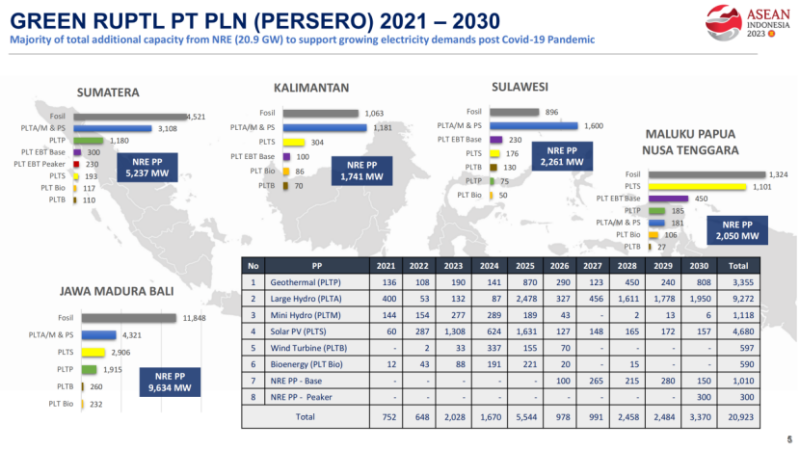
Source: The Indonesian Ministry of Mines and Energy
Data shows that the theoretical solar energy resource potential in Bali is as high as 22GW, with rooftop photovoltaic development potential ranging from 3.3-10.9GW. However, the current solar energy utilization rate is only 1%, and 25% -30% of the island's electricity still needs to be imported from Java Island through submarine cables. Combining the Indonesian government's plan to increase the installed capacity of 2GW of rooftop photovoltaics nationwide last year, and the state-owned power company (PNG)'s plan to increase the capacity of 5.75GW of rooftop photovoltaics from 2024 to 2028, Bali's current extreme dependence on foreign electricity and traditional fossil fuels will be completely resolved in the near future.
Think Tank Recommendations: Technological Innovation and Institutional Reform
Jakarta-based think tank the Institute for Essential Services Reform (IESR) described Bali’s plan as a “flexible solution aligned with its geographical and socioeconomic conditions” but stressed the need for complementary technological upgrades and policy support:
1. BESS Integration: Promote “solar-plus-storage”models in commercial and industrial buildings to address instability in cross-island power transmission and enhance grid resilience.
2. Policy Deregulation: Urge the Indonesian government to abolish existing solar quotas, reinstate net-metering policies, and allow users to sell surplus electricity back to the grid to stimulate market participation.
3. Multi-Stakeholder Collaboration: Establish cooperative networks among local governments, state-owned utility company PLN, educational institutions, communities, and businesses to advance the democratization of energy.
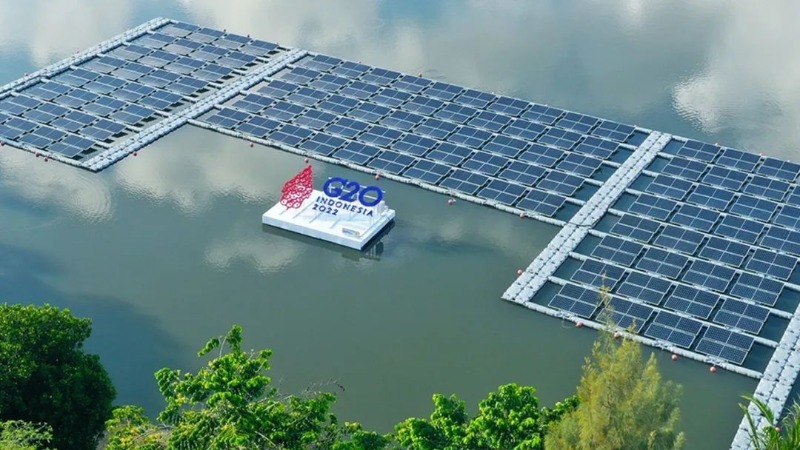
During the G20-related period, Bali constructed a floating solar power plant to ensure electricity supply.
Challenges and Opportunities: A Blueprint for Island Economies
As Indonesia’s cultural and tourism hub, Bali attracts over 6 million international visitors annually. Large-scale solar deployment will not only reduce its carbon footprint but also convey a commitment to sustainability to global travelers. The IESR emphasized, “Rooftop solar is not merely a technical solution, but a symbol of civic participation in protecting the planet.”
Yet, the program faces practical hurdles: Indonesia’s electricity monopoly system, the lack of technical standards for distributed energy grid integration, and high initial investment costs. To address these, the IESR recommends leveraging green financial tools, public-private partnerships (PPP), and innovative subsidy mechanisms to lower barriers.
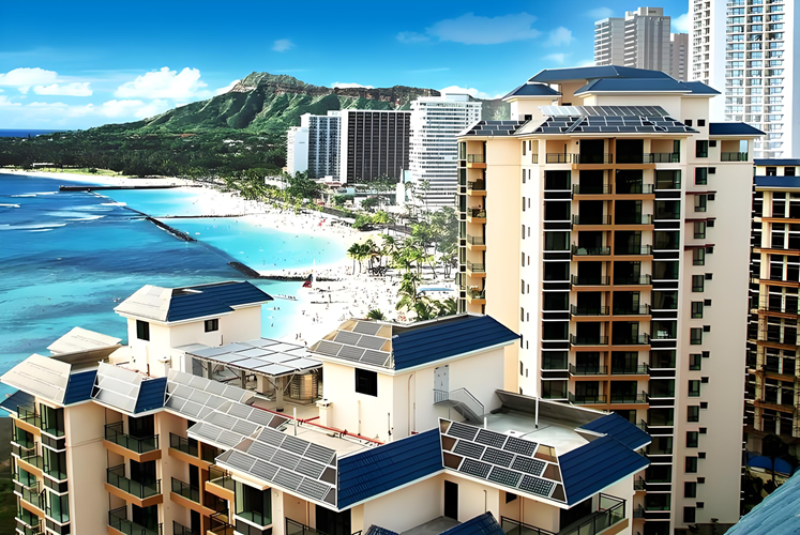
Rooftop Solar on Islands - Source: Internet
The 2045 Carbon Neutrality Roadmap
Bali aims to achieve carbon neutrality by 2045, 15 years ahead of Indonesia’s national target (2060). This ambition aligns with the tourism industry’s acute sensitivity to ecological preservation. As of August 2024, Indonesia’s cumulative solar installations have just surpassed 700 MW. Bali's efforts may become a pivotal lever for the nation’s energy transition.
As Governor Koster stated, “We must not only preserve Bali’s cultural heritage but also leave a sustainable living environment for future generations.” This rooftop solar revolution could redefine the development paradigm for tropical islands—transforming Bali from a tourism hotspot dependent on external energy imports into a self-sufficient oasis of renewable energy.
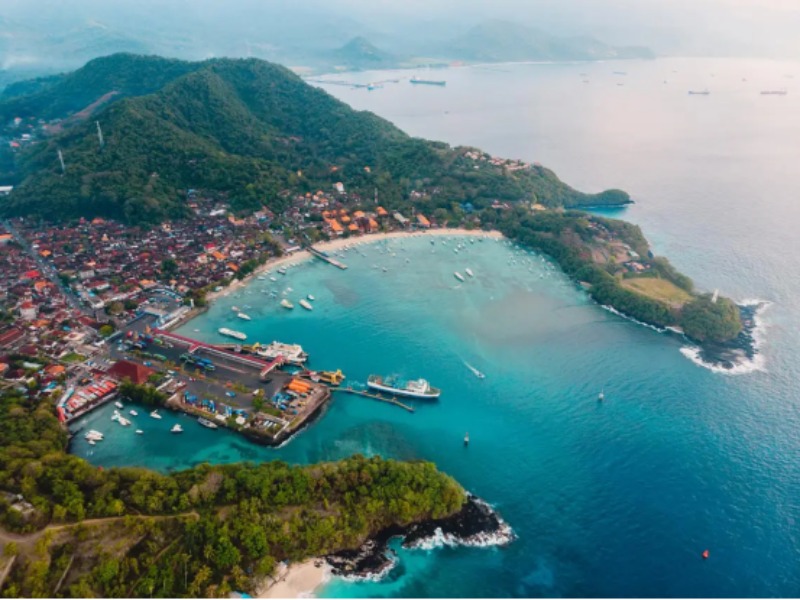
Bali Overview - Source Network